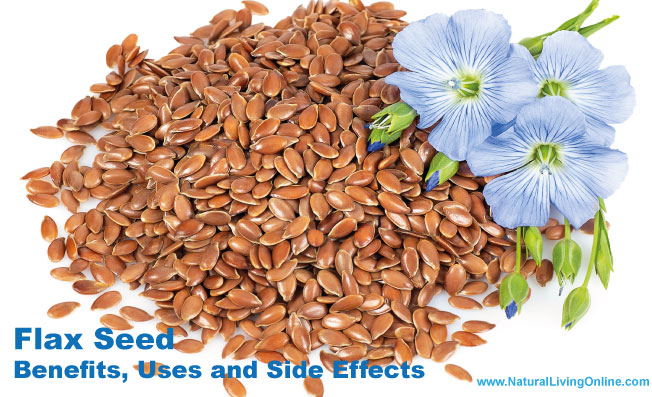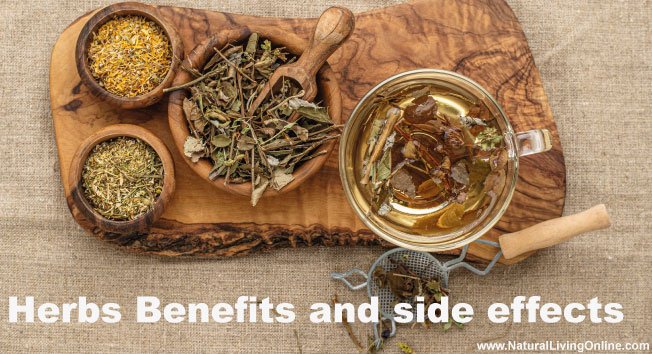Flax Seed is a tiny, oil-rich seed that has been used for centuries as an ingredient in food and medicines. It is a nutritional powerhouse, packing an impressive amount of fiber, protein, vitamins, minerals, polyunsaturated fatty acids (healthy fats) and lignans (a type of polyphenol antioxidant). It can be used in a variety of ways, from whole or ground (meal) to supplements like oil and powder.
Flax Seed is high in both soluble and insoluble fiber, which can help keep you feeling full for longer periods of time and improve digestion. It also contains omega-3 fatty acids, which can help reduce inflammation, protect against heart disease and stroke, and improve brain health. Flax Seed also contains lignans, which have been linked to a decreased risk of cancer.
Flax Seed is easy to incorporate into your diet in various forms. It can be added to smoothies, salads, soups, yogurt or oatmeal. You can also find it in breads, cereals and other baked goods. It can also be used to replace fats in baking recipes or as a vegan egg replacement. Flax Seed oil is another option that can be added to salads or smoothies, or used for cooking at low temperatures. Adding ground flax seed meal to breads, muffins and other recipes will give them a nutritional boost.
Overall, Flax Seed is a great way to get more fiber, healthy fats and antioxidants into your diet. Adding it regularly can help improve your health and well-being.
Botanical Profile
Botanical Name: Linum usitatissimum
Common Names: Flax Seed, Linseed
Plant Family: Linaceae
Countries of origin: United States and Canada
Parts Used as medicine: Seeds and oil
Therapeutic Properties: Anti-inflammatory, antioxidant, anti-cancer, digestive aid, promotes cardiovascular health.
Contraindications: Flax Seed consumption is not recommended for pregnant or breastfeeding women, as it can interfere with absorption of estrogen and other hormones. Additionally, Flax Seed may interact with certain medications. It is advisable to talk to your doctor before adding large amounts of flax seed to your diet.
Nutrition: Flax Seed is a highly nutritious seed, containing plenty of fiber, protein, and healthy fats. It’s also high in micronutrients like manganese and vitamin B1. A single tablespoon (7g) of whole Flax Seeds contains:
• Calories: 37
• Protein: 2g
• Fat: 2.7g
• Carbohydrates: 3.2g
• Fiber: 2.8g
• Manganese: 0.3mg (13% of the RDI)
• Vitamin B1: 0.06mg (4% of the RDI)
Health Benefits of Flax Seed
Obesity
Flax seed can help with obesity by acting as a natural appetite suppressant. Flax seeds are rich in dietary fibre, which helps to keep you fuller for longer and prevents overeating. Studies have also found that consuming flaxseed oil can reduce hunger levels and increase satiety, making it easier to stick to a diet or lifestyle change. Flax seed also contains essential fatty acids, which can help to reduce inflammation in the body, which can help with weight loss. Additionally, flaxseed is low in carbohydrates and provides a source of healthy fats, both of which are key components for successful weight management efforts. Finally, flaxseed is a great source of protein and has been found to reduce hunger levels and help with maintaining a healthy weight. All of these factors make it an ideal food for those looking to lose weight or manage obesity.
However, it is important to note that managing obesity requires more than just dietary changes – regular physical activity also plays an important role in achieving and maintaining a healthy body weight. In addition to eating a healthy diet and getting regular exercise, lifestyle changes such as reducing stress levels, improving sleep quality, and managing portions can also help in the fight against obesity. By making these changes in combination with incorporating flaxseed into your diet, you can effectively reduce your risk of obesity-related health issues.
cancer
Flax seed is a natural superfood that has been found to have a number of health benefits, including the ability to reduce cancer risk. Studies have shown that flaxseed can help reduce the risk of breast, prostate and colorectal cancer. Flaxseed contains lignans, which are compounds known for their antioxidant activity. These lignans have been found to reduce the risk of certain types of cancer by reducing inflammation and preventing cell damage. Additionally, flaxseed is high in omega-3 fatty acids, which are known to reduce inflammation and help protect against the development of cancerous cells. Finally, flaxseed contains fiber which helps to flush out toxins from the body, further reducing your risk of developing cancer.
Blood Pressure
Flax seed has been found to be effective in reducing blood pressure. This is due to its high fiber and omega-3 fatty acid content. Higher levels of these compounds are believed to reduce inflammation, which can help lower blood pressure levels. Additionally, flax seed may also help improve endothelial function, which helps the cardiovascular system regulate blood flow. Studies have shown that consuming flax seed can reduce systolic and diastolic blood pressure levels by up to 10 mmHg, making it a beneficial option for those with high blood pressure. Flax seed is also rich in magnesium, which helps the body absorb calcium better, and this mineral has been found to be helpful in regulating blood pressure and reducing the risk of cardiovascular disease. So, adding flax seed to your diet may be an effective way to help lower your blood pressure levels.
However, it is important to note that consuming too much flax seed can have adverse effects on your health, so it should be consumed in moderation. Additionally, it’s important to pair flax seed with other heart-healthy foods, such as fruits and vegetables, to get the most benefit. Finally, always check with your doctor before adding any new supplement to your diet.
Inflammation
Flax Seed is an incredibly powerful natural anti-inflammatory agent. Studies have shown that consuming flax seed on a regular basis can reduce inflammation throughout the body. The most active ingredient in flaxseed responsible for reducing inflammation is called “lignan”, which has been found to be particularly effective at lowering levels of C-reactive protein (CRP), a major marker of inflammation in the body. Additionally, flaxseed is packed with omega-3 fatty acids which have been found to have anti-inflammatory effects and reduce pain caused by inflammatory conditions such as rheumatoid arthritis. By consuming Flax Seed regularly, it can help reduce overall inflammation in the body and promote better health. In addition to its anti-inflammatory effects, flax seed is also rich in dietary fiber, proteins, minerals and vitamins that are important for health. It has been found to help reduce cholesterol levels, improve digestion and support weight loss. Consuming Flax Seed on a regular basis can be a great way to boost your overall health and wellbeing.
Hot Flashes
Flax seed is a natural remedy that may help reduce hot flashes caused by menopause. The omega-3 fatty acids in flax seed have anti-inflammatory properties, which are thought to be beneficial for reducing the frequency and intensity of hot flashes. Additionally, lignans, compounds found in flaxseed, also have anti-inflammatory effects. These compounds are known to help regulate hormones, which may also reduce hot flashes and other menopausal symptoms. Flaxseed can be consumed as whole seeds or in the form of flaxseed oil, ground flaxseeds, or capsules filled with flax powder. It is important to consult a healthcare professional before taking any supplement for hot flashes. Additionally, flaxseed should not be consumed in large amounts as it may lead to digestive problems and even liver damage. Therefore, a small daily dose of flaxseed is recommended for hot flash relief. Eating foods that are rich in antioxidants can also help reduce the severity of hot flashes. Foods such as berries, green tea, nuts, and dark leafy greens are all excellent sources of antioxidants. Furthermore, staying hydrated by drinking plenty of water can also help manage hot flashes. By making lifestyle changes and incorporating natural remedies such as flaxseed into your daily routine, you may be able to reduce the intensity and frequency of your hot flashes.
Ways to consume flax seed
Flax seeds are incredibly versatile and can be used in a variety of ways. Whole flaxseeds should not be consumed as they will pass through the digestive tract undigested. Instead, use ground or milled flaxseed for maximum nutritional benefit. Here are some ideas on how to consume:
• Sprinkle over oatmeal, cereal, yogurt or smoothie bowls.
• Stir into oatmeal and other cooked cereals.
• Add to soups, stews, casseroles and pasta dishes.
• Thicken sauces with flax meal.
• Use as a breading for fish and chicken.
• Add to pancakes, muffins and other baked goods.
• Use as an egg replacement in vegan baking.
• Make healthy flaxseed crackers.
• Add a tablespoon of flaxmeal to smoothies or shakes.
• Mix with nut butter for a delicious snack.
• Add a tablespoon of ground flaxseed to your salad dressing for added crunch.
There are endless possibilities for incorporating flaxseed into your diet. Be creative and experiment with different recipes to find the best way for you to get all the nutritional benefits of this ancient superfood.
Side Effects
Flaxseed is generally safe to consume, however, it can have some side effects. Consuming large amounts of flaxseed can cause digestive issues such as: bloating, gas, abdominal discomfort and cramps. Additionally, people with allergies to mustard seed or sesame seed may be allergic to flaxseed as well. People on blood thinners should avoid flaxseed as it may interact with medications. Lastly, women who are pregnant or breastfeeding should consume flaxseed in moderation due to lack of research on its safety during pregnancy and lactation. It is always recommended to consult a physician before incorporating new foods into your diet.
Flaxseed is highly nutritious and offers a variety of health benefits. However, it is important to be aware of any potential side effects when consuming flaxseed. If you experience any adverse side effects after consuming flaxseed, be sure to consult your physician.
Frequently Asked Questions
Is it OK to take flaxseed everyday?
Yes, it is generally safe to consume flaxseed on a daily basis in moderation.
When should you not eat flax seeds?
People with an allergy to mustard seed or sesame seed should avoid eating flaxseed as it may cause a reaction. Additionally, people on blood thinners should avoid flaxseed as it may interact with medications. Women who are pregnant or breastfeeding should also consult their doctor before consuming flaxseed due to lack of research on its safety during pregnancy and lactation.
Can flaxseed be eaten empty stomach?
Yes, flaxseed can be consumed on an empty stomach.
What is the best way to eat flax seeds?
The best way to consume flaxseed is ground or milled as it allows for maximum absorption of nutrients. Flaxseeds can be easily added to meals such as oatmeal, cereal, yogurt, smoothie bowls, soups, stews, casseroles, pasta dishes and baked goods. Additionally, flaxseed can be added to smoothies or shakes for a nutritious boost.
Does flaxseed mess with your hormones?
Studies have shown that consuming flaxseed may help reduce the intensity and frequency of hot flashes in menopausal women. However, more research is needed to better understand the effects of flaxseed on hormones.
How much flaxseed is too much?
Most experts recommend consuming 1-2 tablespoons of ground or milled flaxseed per day. Consuming more than this amount can lead to digestive issues such as bloating, gas, abdominal discomfort and cramps.
Does flaxseed stop periods?
No, there is no evidence to suggest that consuming flaxseed will stop your period. However, studies have shown that consuming flaxseed may help reduce the intensity and frequency of hot flashes in menopausal women.
This website does not provide medical advice.
All information provided on this website, and on associated social media networks, including but not limited to texts, images, and numbers are for general information purpose only. It is not intended as medical advice and it does not include all possible precautions, side effects, or interactions that may occur. Neither NaturalLivingOnline.com nor its author/founder take responsibility for how you use this information. Statements contained on NaturalLivingOnline.com have not been evaluated by the FDA. You should conduct thorough research via multiple sources and consult your physician or qualified doctor before using any essential oil or herbal remedy. Information on NaturalLivingOnline.com must not be relied upon for medical, legal, financial or other decisions.













